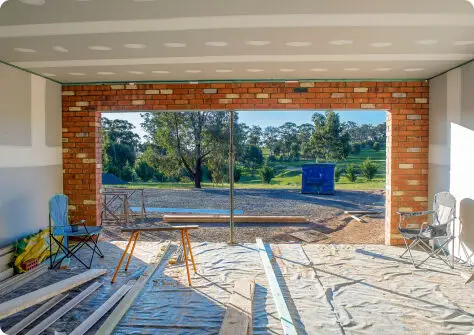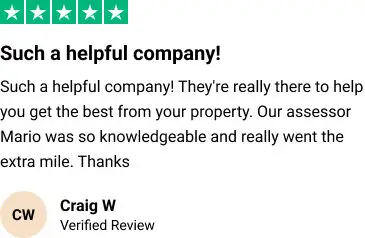Trusted by over 1.7k happy people


Letter rating: Ranges from G to A.
Number rating: Ranges from 1 to 100.
An EPC C rating is awarded when a property acheives a score between 69 and 80. Indicating it is between 69 and 80% energy efficient.
Currently the most common rating for buildings in England and Wales is a D, meaning acheiving an efficiency score of between 55 and 68. A C rating is better than a D, so if your building has a C rating it is performing above the average for England and Wales. In a recent report we found that only 44% of domestic properties acheive an EPC rating of C or better in England and Wales.
Based on this we would say that, yes, an EPC C rating is a good rating. A Domestic energy rating of C means you are performing above the average but you still have a good amount of room to improve your buildings efficiency.
EPC rating can make a big difference to the monthly cost of energy for a property. It is hard to say the precise monthly cost of a building with an EPC C rating without more information, such as the size of the property, the exact EPC score, and the main fuel source - all this requires an EPC assessment which we provide at a very competitive rate.
However we can give examples of possible differences in cost between example properties.
| Property example | Possible monthly electricity use | Possible monthly electricity cost |
|---|---|---|
| 1 bedroom flat, 46 M2, E rating | 212 - 266 Kw/H | £54.50 - £68.40 |
| 1 bedroom flat, 46 M2, C rating | 133 - 167 Kw/H | £34.20 - £41.70 |
| 1 bedroom flat, 46 M2, A rating | 110 - 138 Kw/H | £28.30 - £35.50 |
| Property example | Possible monthly electricity use | Possible monthly electricity cost |
|---|---|---|
| 3 bedroom house, 94 M2, E rating | 279 - 332 Kw/H | £67.70 - £80.60 |
| 3 bedroom house, 94 M2, C rating | 175 - 208 Kw/H | £42.50 - £50.50 |
| 3 bedroom house, 94 M2, A rating | 146 - 173 Kw/H | £35.40 - £42.00 |
*Please note these are rough estimates for electricity usage and cost - figures may vary.
There is not currently a set date for when landlords have to improve to a C EPC rating. However, proposed goverment MEES (minimum energy efficiency standards) legislation shows that the government intends to raise the minimum rating for privately rented properties to a C by 2030. This means all properties which are currently below a C rating and are privately rented will have to make improvements or face a £30,000 fine.
The current minimum for privately rented properties is an E, if the minimum is indeed raised to a C many properties will require improvements. Some properties are however exempt from MEES - see our list of MEES exemptions here.
We can't tell you exactly what must be done to improve from a C to a B EPC rating because every property is unique, if you want specific suggestions then you can book a quick and easy MEES assessment here. However, having helped thousands of UK properties improve their rating we can give some general advice and suggestions
Improve lighting: If your domestic property has a significant amount of incandescent, fluorescent or tungsten bulbs, then upgrading these to LED units can lead to a 1 or at most 2 point improvement on the EPC rating. Despite the relatively small improvement to the rating this is often still worth doing as LED bulbs are cheap to buy, easy to install, and tend to last a lot longer than more old fashioned equivalents.
Upgrade heating controls: Upgrading your properties heating controls to time and temperature zone control can improve your EPC rating by a few points. Time and temperature zone control is defined as having the ability to control the temperature and timing of the heating independently in two or more rooms. This can often be cheaply and easily achieved by replacing a couple of radiator’s thermostatic radiator valves (TRVs) with smart TRV valves that are programmable from a phone app.
Upgrading insulation in lofts or walls: Insulating a previously poorly insulated loft can improve your EPC rating by several points. While more expensive and difficult to implement than some of the above measures, the level of reduction in energy bills and the improvement in EPC rating mean this is generally a very worthwhile upgrade.
Likewise insulating a previously uninsulated cavity wall can very often make sense in terms of payback time and improvement in EPC rating.
Installing Solar PV: As installing solar PV is very likely to drastically reduce your energy costs it will generally lead to a greatly improved EPC rating. We can carry out calculations to tell you exactly how much PV you would need to achieve a specified EPC rating for your specific property.
*These recommendations are general advice and may not be the right thing to do to improve efficiency in all properties. Proper consultation should be booked before committing to any improvements.
In summary, an EPC rating of C is an above average rating for a building in England and Wales. Having an EPC energy rating of C has the potential to save a significant amount of money compared to lower ratings. Even if proposed government legislation goes through, domestic properties with a C will still be able to be rented.

